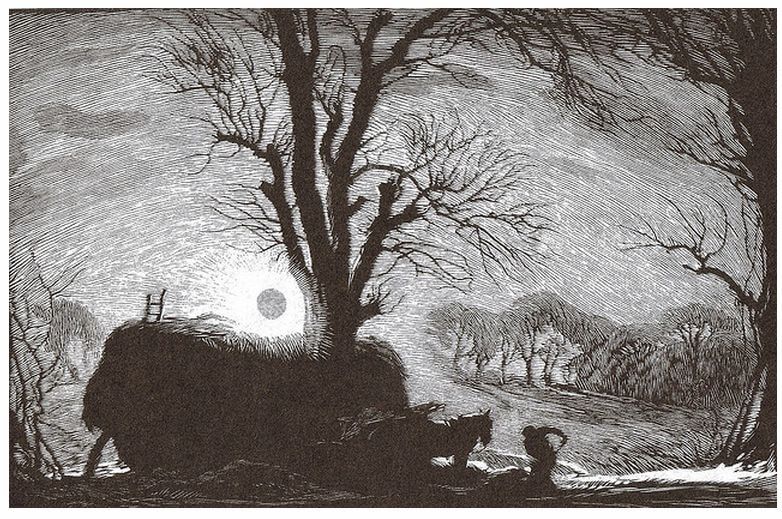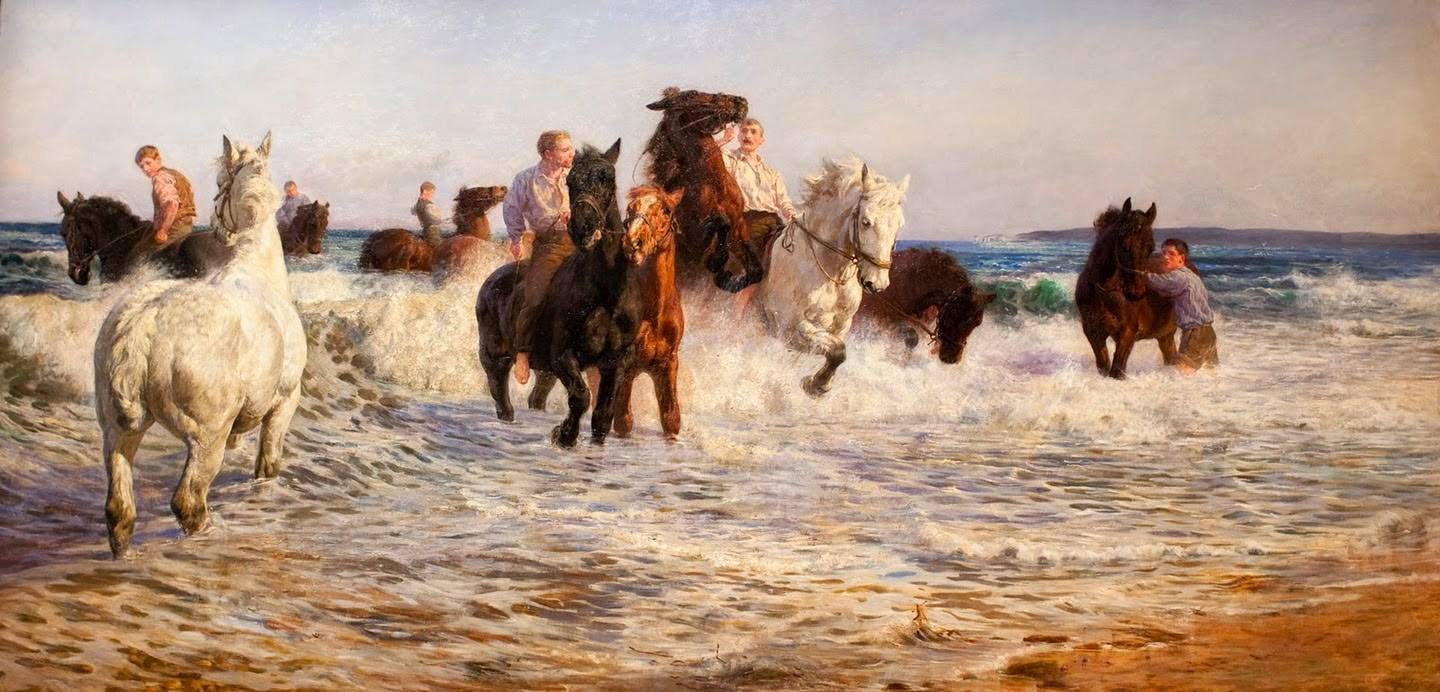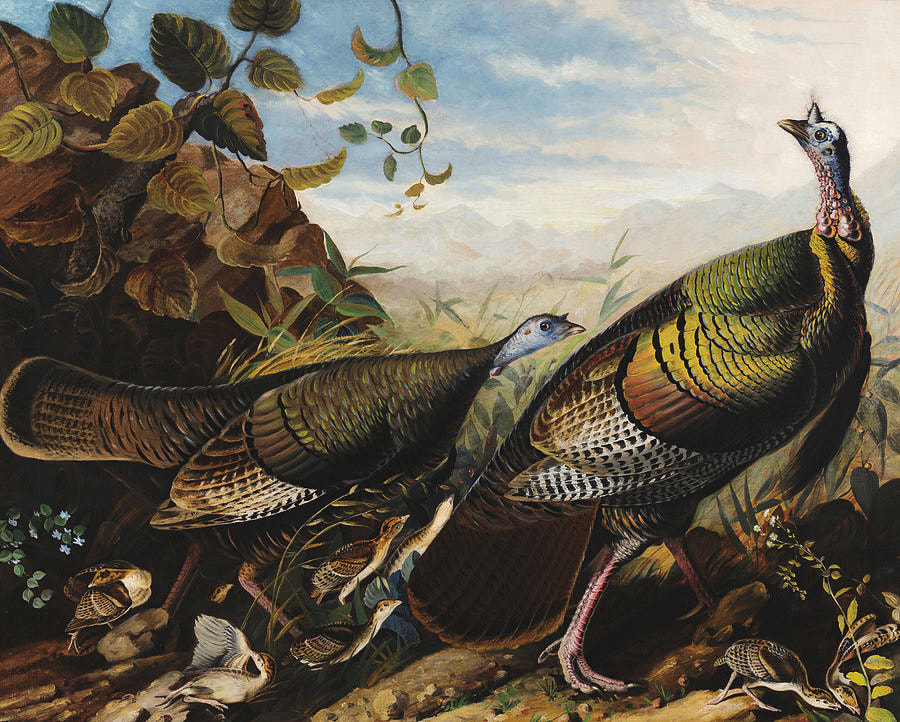|
0 Comments
"One way or another, we all have to find what best fosters the flowering of our humanity in this contemporary life, and dedicate ourselves to that." - Joseph Campbell  C GEORGE SOPER. COPYRIGHT ON BEHALF OF THE AGBI, BY PERMISSION OF CHRIS BEETLES GALLERY, SPECIALISTS IN THE WORK OF GEORGE SOPER. WWW.CHRISBEETLES.COM All animals - the human one included - experience their phases of life. Birth, infancy, healthy growth, the relative stasis of maturity, decay, death. At some point during maturity, the zenith - the peak - is reached. That stage of life at which the system is functioning at the optimal level for producing the best of outcomes. Human beings have some control over how long this peak extends in our individual lives based on the decisions we make about how we live. Hopefully we make wise ones - avoiding falling into excesses of greed, gluttony, lust, acts of hubris, etc - and barring random Acts of God it's a long, rewarding ride. This is also true of civilizations, that they experience these phases of life. And if they are founded in durable concepts and run carefully with an overarching wisdom governing the outcomes of our indisputably enormous cleverness, with the right checks and balances and an eye to maintaining optimal scale, we can similarly extend that period during which the maximum benefit for the maximum number of citizens prevails. I wonder looking at the trajectory of the modern world, which let's say for argument's sake began in late 18th Century England with the birth of The Industrial Revolution, at which point between then and now did we enjoy our zenith? That point during which we were reaping the maximum benefits for the maximum number of people at the same time as enjoying a model that was arguably sustainable, that is, in overall harmony with its ecological context and therefore with the potential for enjoying the long-haul? What did life look like then? I picture this continent being at its zenith when it had the most hybrid vigor. That is, there were lawyers and businesspeople and doctors and firemen and architects and professional composers and musicians and academics, all the likely suspects of today in fact thriving in towns great and small with gorgeous structures built to last at the same time as there were mounted tribesmen chasing bison over epic swards while clans of the backwoods scions of rugged Ulster Scots up mountain coves made the air ring to the strains of Celtic folkmusic grafted to African rhythms and a mixed race of French/Indigenous lead a similar hybrid lifestyle on Red River of the North. Both ends of the human spectrum and everything in between. Specialists and generalists alike, with plenty of room both physical and economic for a multitude of approaches and economies. Underwritten in the settled places by mixed family farms practicing an enduring, human-scaled agriculture based on renewable power sources. Clean water and air for all and surrounded by a diversity in nature. The ultimate freedom of human expression in other words at the same times as allowing for a much greater freedom of natural expression than we currently see. The people who populate this vision are still amongst us. All the types are extant, but their ability to express their range of natures is sorely compromised. Given the awakening of the realization that we are at a juncture where the current model has become morbidly maladaptive, could we then begin work to re-create these conditions of true diversity? To use time honored yet ill-advisedly abandoned approaches alloyed with those modern advancements that show the most promise for affecting our longevity for re-introducing such hybrid vigor to our model? As a vaccine against our current steepening decline? Could we work to broaden the parameters while reducing the scale once again? To recover our cultural health, our vitality, reduce human conflict and conflict with nature? To enjoy the economic resiliency that such a model possesses? Choosing wisely this time, drawing from the vast breadth of all our experience and wisdom could we make it last for the sake of our children and other lifeforms? I don't know the answer to this. I don't think anyone does. But I know i am far from alone in asking these questions, in envisioning such an outcome. And I know it is worth attempting.  Lucy Kemp-Welch, art "The world needs less 'or' and more 'and'... " - Jim Dinning, former Alberta Provincial Treasurer Mr. Dinning, above quote, was speaking on the CBC Calgary morning show. He was talking about our approach to the future in a time of global climate crisis. Speaking of affecting the proper headspace for forging solutions. I couldn't agree with him more, although I doubt Mr. Dinning has in mind what I do as being included in that "and." I also wonder if he understands the full nature of our context, our circumstance today, being that our current mode of existence, our current model of civilization is incompatible with life on earth, including our own. He may, I don't know. I do believe many who didn't understand this even five years ago are understanding it now. Perhaps not verbalizing it quite yet, but feeling it, feeling it in their core. From the elders who have been around long enough to have developed a knack for synthesis of events into a larger whole to young adults and even youngsters only on the verge of adulthood become deeply skeptical of the narrow notion of "progress" that has been mainstream, it's a truth that is seeping into the collective subconscious. That our current civilization - global now - is in textbook decline and fall. I'm sure there'll be more on that to come, but in the meantime you may find this an interesting primer including as it does include the baseline reasons for the fall of civilizations: https://www.nationalgeographic.org/article/key-components-civilization/ Diversity is a key to resilience. A culture with a broad range of economic options is a resilient culture. We make much of diversity being a strength here in my country, Canada, in fact, but is my country truly diverse? I'd argue that it is not. We have one economy, for instance - a cash economy. And the bar is very high. To live in any comfort requires a LOT of cash, relative to the times of our ancestors. There is no more cheap land. There is a crisis of affordable housing. There is no real space left where the climate nurtures settlement in those proportionally insignificant fringes of this vast and mostly very nasty, barren second-coldest country on earth. Where anyone would want to live. (What proportion of Canadians for instance experience a definitive "Canadian winter" on an annual basis? Or have ever experienced one in full for that matter? Most of us living in extensions of moderate American climates?) There is an industrial economy dependent on the burning of endless oceans of hydrocarbons meeting our needs. There is a system of "just in time" delivery which like the rest of our system today, provides for next to no wiggle-room, as was painfully obvious for instance during the recent rail blockades. A system devoid of and with no room for patience with anything that stands in the way, regardless how legitimate. Most of us are urbanites now. Not much diversity here at the foundational level, anymore. We've winnowed away at diversity and at our options for diversity as we've grown and gelled into what we are today. How about being multicultural then, another thing Canada makes much of? We certainly give the outward appearance of being so in places like Toronto and Vancouver and increasingly elsewhere. But functionally? I don't believe it. I believe we have one culture here, a techno-industrial culture of material affluence focused primarily on growth in order to maximize profit, personal, household, national. Not satisfaction, not wellbeing, not right-livelihood, not mental health, not ecological health, not diversity - human or in the rest of nature - not human scale, not aesthetic living spaces, certainly not sustainability, not humane conditions for our livestock, not a future worth contemplating for our children, perhaps not even for ourselves depending how old - but rather maximum material profit. That is our culture. The people who come here agreeing to this. There are no nomads. No goat herders. No pastoralists, most places. No healthily functioning hunter-gatherers. With the exception proving the rule... Indeed I would argue that nothing could underscore the painful fact of our functional monoculturalism here in Canada better than our nascent foray into Reconciliation with our indigenous peoples. For the first time in the country's history we have gotten serious about extending some of the balance of power, some leverage to a culture within our borders who are significantly NOT on board with the way we do things, with the status quo of techno-industrial, developed-nation life. A very different culture. Our first serious stab at multiculturalism. And how has this been working for us? www.thestar.com/politics/federal/2020/02/11/reconciliation-is-dead-and-we-will-shut-down-canada-wetsuweten-supporters-say.html www.theglobeandmail.com/opinion/article-reconciliation-isnt-dead-it-never-truly-existed/ Not much wiggle-room there either it seems, even at what is really just the bi-cultural level if we're honest. This is just with two competing cultures flexing their powers. What if we were to throw a few more opposing cultures into the fray? Yikes! In reality, it seems to me while through the homogenizing forces of monoculturalism as brought on by techno-industrialism and globalization we are as a country, and a globe no less, rapidly laying waste to what little is left of the former diversity of human and other lifeways, we are at the same time a civilization of profoundly byzantine complexity affording us little flexibility to rectify our problems. The mechanisms governing our global economy being so complex that the parameters surrounding their healthy functioning are no longer adequately comprehended by anyone, making for a very tenuous grip on things. Another fundamental cause implicated in the collapse of civilizations, in fact. Each new layer of complexity leading to an ever heightened vulnerability in the system such that the whole thing eventually comes down for the impossibility of even fathoming all the balls in play, their trajectories, let alone keeping them in the air. One tiny screwball - say for instance a stab at true multiculturalism in a system with room alone for total consensus to function - and the cascade of disruptions this engenders, each one of which we must attempt to separately address, may prove fatal to the system or compound a series of events fatal to the system. And yet what are we calling for to address our deepest woes today? Colossal windfarms. Electric cars. Vast arrays of solar panels. Artificial intelligence. Trips to Mars, even! All the attendant layers. More and more and more complexity. Ever heightened vulnerability. And this is just pertaining to our economies. Nevermind trying to come to grips with our effects on the parameters governing the functioning of ecosystems, which can never be fully known. "The ability to exert control on economies depends on having sufficient control of the system parameters..." - Michael Harre et al, University of Sydney, Australia I personally doubt we can avoid the collapse of our current mode of existence, our global civilization. For one thing, all classic signs suggest we are very firmly in its throes already. Are we surprised? Having long acknowledged our model being unsustainable? We shouldn't be. Where we are now, as the inevitable outcome given the basic flaws of the model we have been subscribing to since probably the beginning of the industrial revolution, being the difference between having a problem - something that can be solved - and being in a predicament, which can only be negotiated. Successfully or not. You are in a canoe. You hear the rapids ahead - a problem. The solution being to paddle to shore. Fail to do this and you find yourself in the rapids - a predicament. There is no solution to being in the rapids once you are in them. Your only hope is to have in place the systems skills beforehand to come out the other end. Or barring that, to be able to make necessary adjustments on-the-fly in time to avoid being swamped. So lets get the skills in place, I say! We cannot know where the ultimate tipping points lie, the thresholds beyond which negotiating our predicament will become much more difficult. Let's acknowledge where the present model is headed without focusing on the inevitability of where this is all going, but rather focusing on the possibilities for engineering what awaits us on the other side. On the freedom we will have to do better with a clearing of the slate. Starting in the present. Let's aim to increase our functional diversity for a change. Towards more "and" in the system. "An emphasis on a point of no return is not particularly helpful for bringing about the conservation action we need. We must continue to seek to reduce our impacts on the global ecology without undue attention on trying to avoid arbitrary thresholds." - Professor Barry Brook, Director of Climate Science, University of Adelaide *Part Two next week... |
AuthorHave a look at our "Education/Contact" page for info on the author. Archives
March 2020
Categories
All
|

 RSS Feed
RSS Feed
